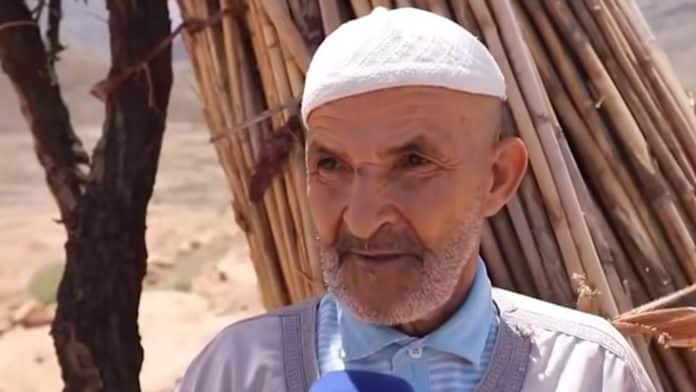Moroccan official television’s handling of earthquake coverage has come under scrutiny once again, following the recent earthquake on September 8, 2023 in Morocco’s Al houz region. This echoes a similar issue that arose during the Al Hoceima earthquake on February 24, 2004.
In both instances, Moroccan television channels chose to use Modern Standard Arabic to communicate with earthquake survivors, despite their primary language being Amazigh. This language barrier caused immense difficulties for survivors, who struggled to express their feelings and help needed.
The use of Arabic in these situations led to survivors searching for appropriate words, often resulting in muddled and confusing statements. Even local government officials, doctors, and nurses were affected, responding in Arabic despite potentially never using the language before. This miscommunication hindered the transmission of crucial information during live broadcasts.
The choice to interview survivors in Arabic only added to their trauma, as they grappled with a language they were not proficient in. In such distressing situations like this, survivors should be allowed to express themselves in their mother tongue, as it is the most genuine and heartfelt way to convey their experiences.
The insistence on using Arabic rather than Amazigh, the language spoken by the majority of survivors, during earthquake coverage has led to significant communication challenges, adding unnecessary layers of difficulty for those already suffering.
An example from the Al Hoceima earthquake coverage illustrates the issue, where a survivor attempted to express gratitude but ended up conveying a different message due to his limited Arabic skills. This language barrier has unfortunately repeated itself in the recent Al Houz earthquake coverage.
While these channels emphasized solidarity in providing material support like shelter, food, clothing, and medical treatment, they overlooked the importance of psychological and moral support. True solidarity and intimacy in offering condolences should involve speaking the survivors’ language and dialect to make them feel a genuine connection.
The difference in survivors’ responses to questions in Arabic versus Amazigh was striking. Those questioned in Arabic appeared anxious and confused, while those who spoke in Amazigh did so naturally and confidently, without communication barriers.
Foreign Arabic channels, like Al Jazeera and Al Arabiya, were not exempt from this issue, as they also primarily used Arabic in their coverage. However, this was partly due to the perception of Morocco as an Arab country, which they believed would be understood by the local population.
Surprisingly, little has changed in terms of language communication from the 2004 Al Hoceima earthquake to the 2023 al Houz earthquake. Despite Amazigh being recognized as an official language since the 2011 constitution, media coverage, especially concerning communication with residents, hasn’t reflected this change. The absence of Amazigh in these situations may highlight its imitation and appropriation rather than genuine recognition.
Contrary to claims that Arabic is the protector of Islam, the presence of Islam among Amazigh speakers, as evidenced in the aftermath of the earthquake, is strong. Mosques are widespread, indicating a deep-rooted connection with Islam. This connection is maintained through the Amazigh language, which preserves authentic Moroccan Islam and protects it from extremist tendencies.
In conclusion, the language barrier created during this earthquake coverage had unintended negative effects on the survivors, has led to significant communication challenges, adding unnecessary layers of difficulty for those already suffering during times of crisis.

